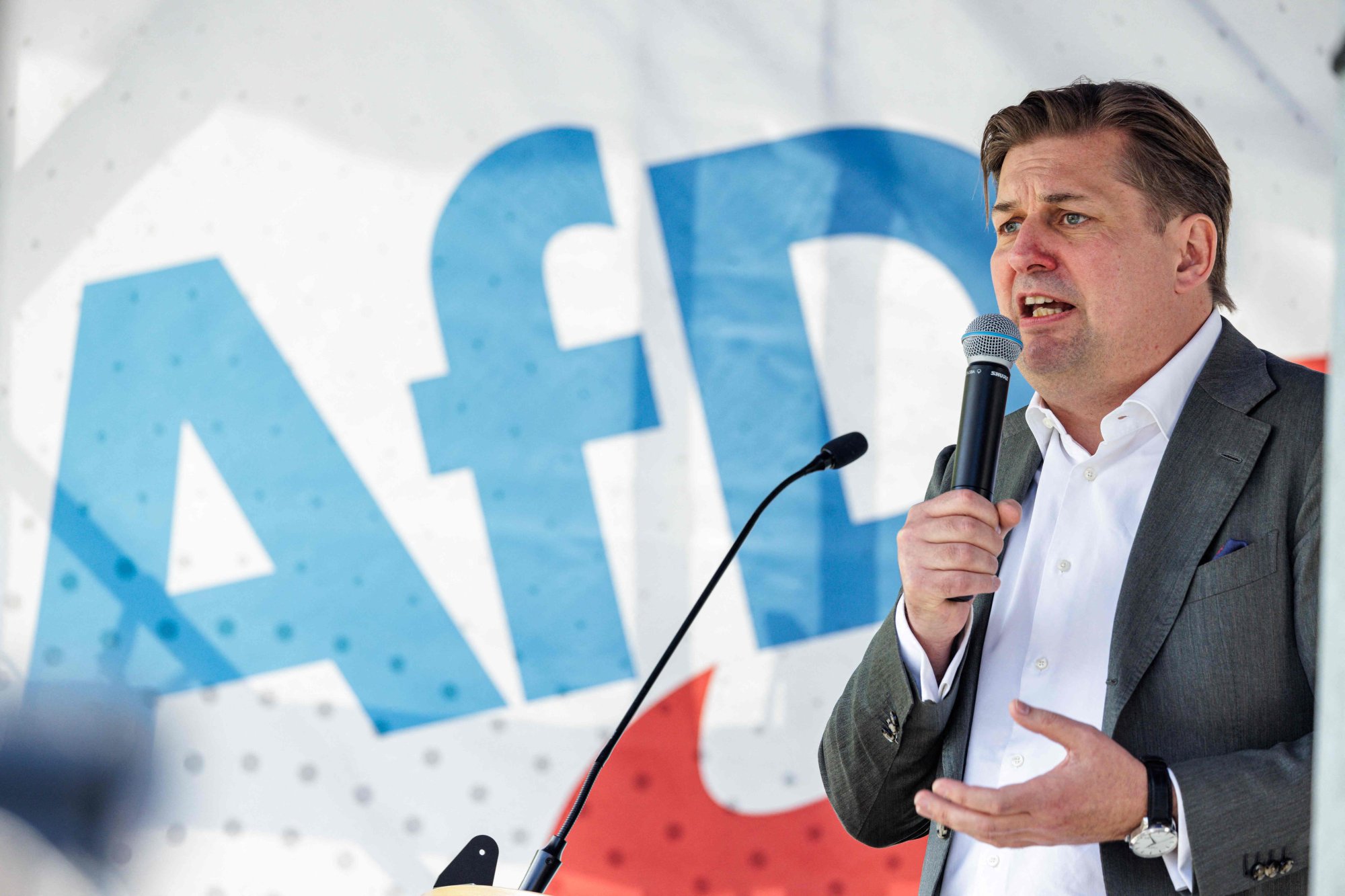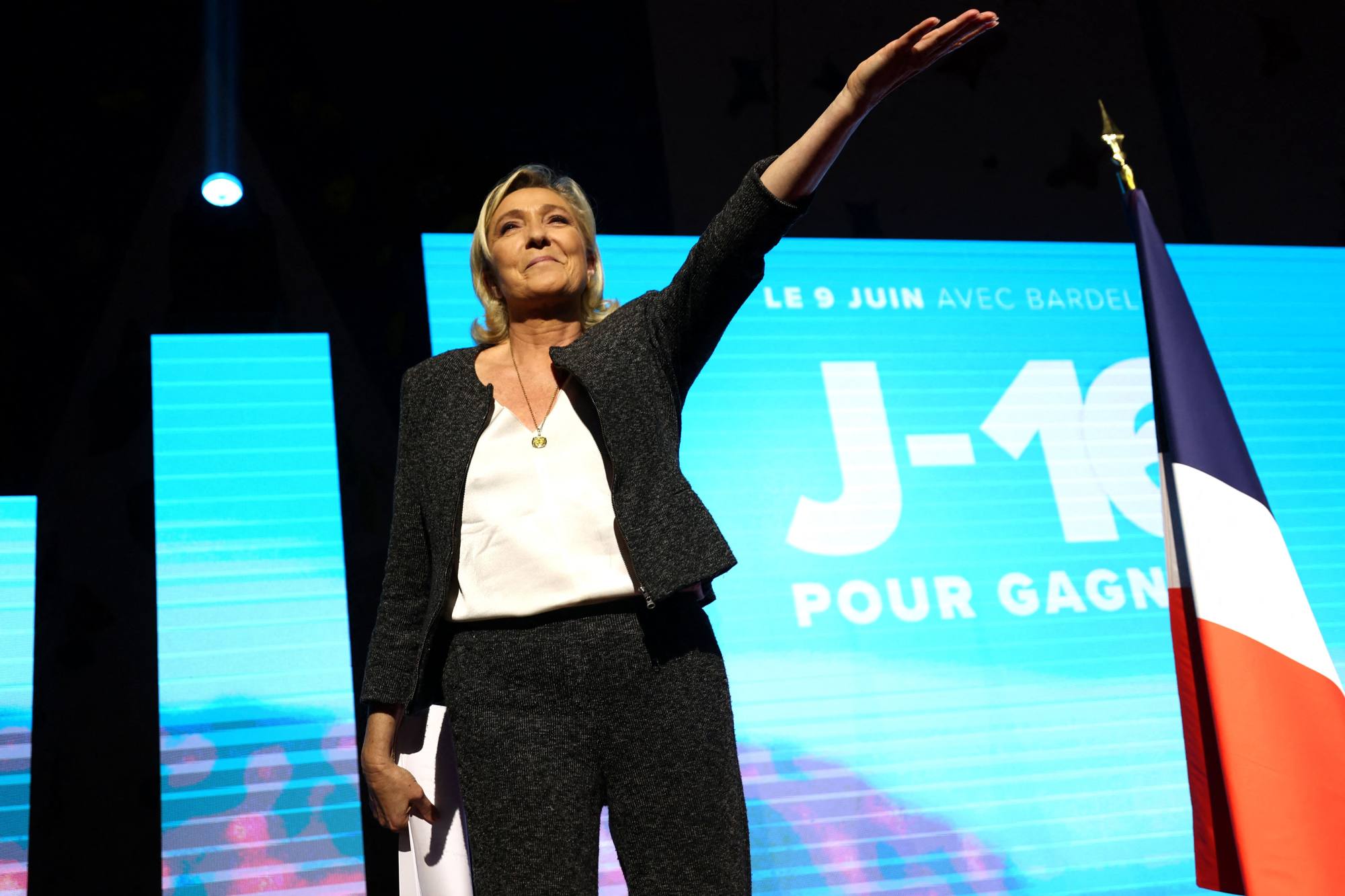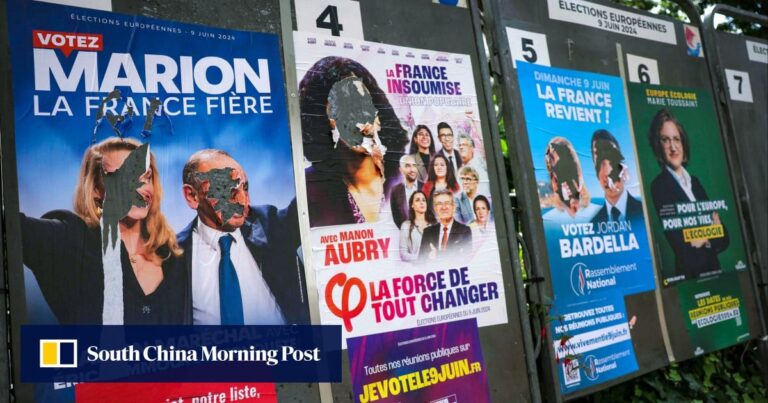“Both the far-right and far-left parties are expected to gain seats in the European Parliament, which is likely to increase pro-China votes, potentially leading to softer rhetoric and less support for a tougher stance towards China,” the report said.
The breakdown of returning political groups will also influence the makeup of the next European Commission, but centre-right Ursula von der Leyen, the architect of the EU’s tough stance on China, is widely expected to secure re-election as commission president.
The European Council on Foreign Relations (ECFR) predicts that the number of seats held by the far-right Identity and Democracy (ID) group will increase from 58 to 98, while left-leaning groups will jump from 38 to 44.
Neither group is the largest in parliament, but their rise comes as some of the more hawkish factions are expected to lose influence when hundreds of millions of Europeans vote on the makeup of the next parliament.
According to ECFR, the Green Party, which has been the toughest on China in parliament, could see its seats fall from 71 to 61. The centrist ReNew party, which has consistently supported tougher measures against China, is expected to lose 15 seats to 86.
The Czech study authors Kara Němečková and Ivana Karasková said 361 votes were needed for a parliamentary majority and “the size of each political group determines its influence.”
“The rise of both far-right and far-left parties has the potential to change the legislative environment, including the EU’s stance towards China, leading to a tougher political tone and changes to existing and new initiatives, which could further polarise the debate within the European Parliament,” the report said.

The report is not linked to EU institutions, but Karaskova previously served as an adviser to Vera Jourova, the European Commissioner for Values and Transparency, on China’s disinformation strategy.
The authors pointed to high-profile scandals, including allegations that MEPs accepted bribes from the Qatari government in exchange for political support, and concluded that the European Parliament is “exposed to security risks”.
The investigation also touches on a recent espionage case involving a leading German far-right candidate in next month’s federal election: An aide to Maximilian Kler, leader of the Brussels-based Alternative for Germany (AfD), was arrested and charged in April with espionage for China.
A few weeks later, Kula was banned from speaking publicly for the party and resigned as leader after telling an Italian newspaper that he did not believe all members of the SS, the Nazi paramilitary organization, were criminals.
“Before I label someone a criminal, I want to know what they did. Among the 900,000 SS men there were many peasants. It’s true that there was a high proportion of criminals, but not all of them were criminals. I would never say that someone in an SS uniform is automatically a criminal,” he told La Repubblica.
Kula and other far-right lawmakers have frequently opposed parliamentary efforts to condemn China. Marine Le Pen’s far-right party, which is expected to lead French opinion polls, voted against resolutions against China nearly twice as often as it voted in favor of them between 2019 and 2024, a survey found.

The survey found that German lawmakers from the left-wing Left Party voted against resolutions on China 48 times and in favor only nine times.
The investigation also found that members of left-wing groups in Ireland, Portugal and Spain had tabled amendments to parliamentary resolutions that borrowed from official Chinese government language on issues including Hong Kong, Taiwan and the Xinjiang Uighur Autonomous Region.
“These amendments call for greater dialogue and cooperation with China, criticize the EU for adopting a confrontational policy that is allegedly seeking to interfere and destabilize China, and insist on respecting the one-China principle.”
The report specifically singled out two Irish MPs who have been the most vocal opponents of anti-China policies and resolutions: Clare Daly and Mick Wallace of the left-wing group Independents4Change, who “voted against resolutions or reports critical of China in 86 percent of cases.”
Both Daly and Wallace are hugely popular among Chinese state media, with the latter becoming so well-known to audiences that he was given the nickname which translates as “the golden lion king,” The Irish Times reported last year, citing news database LexisNexis.
The paper’s investigation also found that Daly had been featured in Beijing-backed media “more than Ireland’s top political leaders, Irish celebrities and sports figures such as Conor McGregor and Rory McIlroy”.
Daly declined to be interviewed, and Wallace has not yet responded to a request for an interview.

